
ILMASC - UMECIT - CORPORATION 2030
Diploma in Mediation and Conflict Resolution
Valid to obtain the Mediator certificate in the Republic of Panama.
Duration
Modality
Extension Address
Social Importance
Additionally, the development of Mediation as a regular space for conflict resolution produces the following social impacts:
Facilitate access to justice for citizens, overcoming economic, geographical and cultural barriers that may exist.
Greater efficiency in the use of resources and in decision-making.
Development of transformative leadership skills applicable to the private, public, bilateral or multilateral context.
Offer society diversified spaces for the solution of conflicts that can be better adapted to the nature of the conflict.
Mitigate the congestion of the courts, offering less formal spaces and therefore more agile for the solution of conflicts.
Increase community participation in conflict resolution processes, stimulating a culture of dialogue.
Training Objectives
The professionals who obtain the certification as Mediator of the Diploma in Mediation and Conflict Resolution, They will obtain sufficient knowledge and skills to intervene in the development of conflict management processes, which quickly generate efficient solutions of mutual benefit for the parties in conflict.
The planned academic content will provide the professional with in-depth and innovative training on negotiation, mediation and conciliation techniques; and in general about alternative conflict resolution methods, which will allow you to be an effective service agent to society.
The General Objective of Diploma in Mediation and Conflict Resolution is to train duly trained mediators to efficiently exercise their social function.
The specific objectives of the Diploma in Mediation and Conflict Resolution
- Provide comprehensive training in knowledge and skills for the exercise of mediation, through a multidisciplinary approach in communication, creativity, regulatory framework, negotiation, neutrality, applied neuroscience and consensus building strategies.
- Study the theories of conflict.
- Develop skills and attitudes for the construction of a culture of peace in all areas of society.
- Provide in-depth academic training on the conceptual, legal and application framework of alternative dispute resolution mechanisms.
- Provide training in mediation and negotiation techniques that allow planning, intervention and evaluation of self-composition processes, in various application contexts.
- Propose to the participants specific negotiation tools and their use in the mediation process and in professional practice in general.
- Acquire basic theoretical principles of the discipline of conflict resolution, from a sociological perspective, which allow the future mediator to develop their conflict analysis skills from different angles, prior to their intervention.
The Diploma in Mediation and Conflict Resolution It is an eminently practical course based on conceptual analysis and immediate application in practical cases.
CONCEPTUAL EXHIBITIONS: These expositions give the necessary theoretical base that is immediately applied through practical exercises. The use of support material will help to quickly and better visualize and assimilate the contents of this training.
PRACTICAL EXERCISES: The practical exercises will allow the development of a casuistry appropriate to the exposed conceptual framework. They will allow the participant to recognize and explore their own resources and interact with the group. The exercises that will be carried out will allow the development of skills and a practical and experiential insertion into the conflict resolution processes.
PARTICIPATORY DISCUSSION: From a reflection of the content already assimilated, in an agile way, the students present their vision of the subject. The criteria are shared, encouraging group interaction, thereby promoting double learning: that which each student individually contributes to the group and that which is elaborated jointly. In these dynamics the teacher will help to systematize the different conclusions that have been reached, clarifying them.
The formation of Diploma in Mediation and Conflict Resolution It will be developed in 100 hours of training, depending on local biosafety policies, determined by the respective authorities:
Virtual:
- Training in virtual modality will be developed on the basis of academic study materials individualized by each teacher for their different subjects.
- The study material will be reviewed by each participant and its analysis will be deepened with the help of video collaborations, forums, chat, homework, wiki and workshops, which will be developed according to the academic program structured by each instructor.
The virtual classroom will allow the development of practical exercises in mediation and online role-playing.
Modules
Conflict theory and conceptual foundations of mediation and alternative conflict resolution methods. mediation models.
Content:
Learn the conceptual ontological development of the conflict that has given way to the configuration of an authentic Theory of Conflict. Conceptually systematize the different currents of approach, management, handling or solution of conflicts. Analyze the legal framework of mediation and conciliation. Define nature, legal effects and fields of application of mediation. Identify the conceptual framework for the development of the casuistry and subsequent modules. Generate ontological conceptual frameworks that illustrate the development of skills and guide the strategic intervention of the mediator.
- The different contexts of conflicts.
- The substance of the conflict.
- Conflict costs and life cycle.
- The power of the actors in the conflict.
- The human face of the conflict: psychological games.
- Complexity and intensity of conflicts.
- Coalition game.
- The outcome of the conflict.
- Conflict life cycle. Latency state. Prevention stage. Conflict emergency. Resolution stage. Escalation and reaching the destructive threshold. Containment stage so that it does not cross the threshold. Approach from complexity.
- The human dynamics of conflict.
- Neuro-Linguistic Programming applicable to conflict resolution.
- Relevant behavioral metaprograms in dealing with conflicts.
- Read conflicts from emotion.
- Introduction to conflict resolution methods.
- Conflict resolution methods and access to justice.
- Legal and Constitutional Framework of Alternative Conflict Resolution Methods in legislation.
- Interest Satisfaction Model (Harvard Model).
- The Harvard School and the Theory of Negotiation.
- Zero-sum bargaining vs principle-based bargaining.
- Strategy games. The engine of the negotiation.
- Mediation, an efficient process.
- Expected result: Improve the situation. May people be better.
- Role plays.
- Transformative model.
- Recognition and appreciation.
- Mediation, a pedagogical process.
- Expected result: Improve values. Let people be better.
- Circular-Narrative Model.
- The weight of the stories. Communicate better.
- The power of storytelling in mediation.
- Multidisciplinary sources of the model.
The mediation process in four stages: knowledge and skills of the mediator appropriate to each stage.
Content: Develop the structure of the mediation process in four stages and the comprehensive training of the mediator in knowledge and skills to manage the process.
- Mediator Profile: Neutrality. Communication. Negotiation. Strategy.
- The emotional intelligence of the Mediator:
- self knowledge
- Self-management and emotional self-regulation
- Motivation
- Empathy
- Positive Conflict Management.
- The Stages of the Process.
PROCESS – FIRST STAGE
Objectives of this stage:
- Speech by the Mediator and welcome of the parties
- Validation of individual perceptions of the conflict brought by each of the parties
- Understanding of the conflict and bases for collaboration between the parties.
- Mediation Agreement
Duties of the Mediator:
- Contain the catharsis process.
- Create a climate of trust in the process and in the mediator.
- Description of the process with clear and honest information
- Signing of the confidentiality agreement
- Listen and validate the stories of both parties.
- We resolve conflicts that we can understand. Make the conflict understandable to the parties. (origin/development/other parties involved/positions towards the conflict/alternatives, etc).
- Clear up misunderstandings.
- Show different points of view
Mediator's Speech:
- Explanation of the mediation agreement (non-disclosure agreement).
- Explanation of the three basic pillars (voluntariness, confidentiality and impartiality).
- Explanation of the Procedure (joint and private sessions).
- Standards of appropriate conduct.
- Adequate space for the type of mediation.
- Final agreement and its value.
PROCESS – SECOND STAGE
Objectives of this stage:
- Limits of the mediation process
- Identify and prioritize the interests of the parties
- Definition of Relational Responsibility
- Recognition and revaluation of the other
- Create a work schedule
Mediator functions:
- Make understandable to the parties the issues that can be worked on in mediation and those that cannot.
- Prioritize according to the needs of the case, the issues to be resolved on the agenda.
- Work on the Outcome & Relationship dimensions
- Facilitate mutual recognition
- Encourage respect for individual needs
- Development of the Respons(H)ability of the parties
PROCESS – THIRD STAGE
Objectives of this stage:
- Construction of a joint vision of the situation
- Generation of creative ideas
- Co-participation of the parties
- transforming proposals
Mediator functions:
- Encourage the creativity of the parties.
- Prepare the parties to collaborate in the construction of joint solutions.
- pick the options
- Verify that the options are applicable in reality
PROCESS - FOURTH STAGE
Objectives of this stage:
- Realistic proposals for a mutual agreement
- Assume costs and generate actions.
- Signature of the agreement
- Closing of the process: Learning.
Mediator functions:
- Satisfaction of the parties.
- The sustainability of the agreement
- Give the parties a time to reflect before signing the agreement
- The way of writing the agreement (clear and concise, written in such a way that the parties fully understand its scope).
- Establish the phases to make the agreement operational.
- Include a mediation clause.
- Establish the way of monitoring the agreement.
Application of neuroscience in the conflict resolution process: its benefits in mediation and negotiation.
Content:
The conflict is the product of a human relationship, positively influencing that relationship, understanding the comprehensiveness of the dimensions of the conflict, is not only necessary but also strategic for the management and resolution of conflicts. The development of neuroscience contributes with analysis and specific tools applicable to conflict resolution processes.
- Natural history of emotionality: Understanding the physiological bases of emotional processes.
- Empathy, empowerment and trust: The three emotional pillars of the mediating role.
- Fundamental principles and basic tools for regulating emotional tensions and preventing destructive escalations during dialogue.
- The use of individual meetings in addressing processes of intense destructive escalation.
Practical strategies to improve communication and creativity in the mediation process.
Content:
Communication and creativity are essential elements in conflict resolution processes; The objective of this module is to have specialized skills and strategies applicable in its management and resolution, expanding and updating the mediator's toolbox.
- Communication Styles.
- Communication and conflict resolution.
- Effective communication techniques
- Trust Generation
- Perception and understanding
- Reframes
- The art of asking
- Adaptation of the Johari Window.
- Creativity and conflict resolution.
- strategic thinking
- Generative thinking.
Mediation and restorative justice in the family environment: specific strategies.
Content:
The characteristics of conflicts between members of the same family determine that the use of self-composition mechanisms is more advisable, to the extent that the rights of children are adequately protected and agreements are reached in scenarios of balance of power between the parts. The permanent, complex and diverse relationships that occur in the family nucleus require mechanisms and processes that adapt to the context and not the context to a rigid process. This requires specialized training and appropriate strategies for family dynamics. Families: Latin American families evolution and contexts. Latin American childhood and poverty. Power in parental relationships, functions and the right to be heard, in defense of their rights. Parental, social and state responsibility. Interdisciplinary framework. Conflicts and violence in parental contexts and couples of parents. Characteristics of the conflicts between the components of a family group. Myths, beliefs, stereotypes. The social, factors that affect socialization. Social role of law in regulating the positive value of conflict in family relationships with a restorative approach.
- Communication, the story of the parties in the restorative processes applied to family conflicts, its strength: adequacy and flexibility in supporting access to economic, social, cultural and environmental rights in the family sphere.
- Metalanguage language, information: what was said, what was done, communication sequences, with crossed emotions, tensions: position-interest-needs-values-feelings, their incidence in decisions.
- Expanding the concept of justice: adversarial response systems and self-composition mechanisms. Function of agent of the reality of the restaurateur, Systemic, interdisciplinary, preventive approach, dejudicialization, support and control requirements.
- Specialized training and strategies appropriate to the dynamics of the different family models:
- Management of communication in permanent, complex relationships, crossed by intersectorialities, age, sex, race, poverty, migration.
- Diagnosis of the conflictive relationship, proposal, reframing of the conflict and generation of options. Methods and techniques.
- Instances of reformulation of relationships: understanding, commitment, transformative process, choice and evaluation of options and consequences in coexistence and emerging rights of parenthood.
- Strength of the role of the restorer, guide, substantive and procedural agreements. Partial or total. closures.
- Right to be restored in the family, social, state environment, with respect for their culture, to the autonomy of the will in complex contexts.
- The management of rights as guarantees of favorable conditions for human development. Analysis of good practices. Risks and possibilities in Latin America.
- Management of communication in permanent, complex and diverse relationships that occur in the family nucleus:
- Characteristics of conflicts between members of the same family.
- Diagnosis of the relationship.
- What can and cannot be agreed?
- Managing stress in the relationship.
- The rights at stake protected by the legal system.
- Transferable and non-transferable.
Alternative conflict resolution and penal system. Restorative justice in the juvenile field.
Contents:
The application of alternative conflict resolution methods in the penal system is today a reality in national legislation and in many countries around the world. Its development is fundamental to accompany policies of minimum criminal intervention and very necessary to provide more appropriate responses to the criminal conflict, both for the victims, for society and for the offender himself. These developments are recent and are still in some cases little used. Its correct impulse and application require its correct theoretical and practical understanding; and an adequate public policy that promotes them. The development of children's rights and the more or less widespread failure of criminal responses to offenses committed by minors have forced a reconsideration of the traditional juvenile criminal justice system. In some cases, the proposals go in the direction of penal populism that proposes tougher penalties and lowering the age for criminal responsibility, proposals that have only proven to aggravate the problem. For this reason, the study, development and adequate implementation of Restorative Juvenile Justice as an alternative to traditional repressive justice is essential to contribute socially to more appropriate responses from the system to a phenomenon that requires attending to the particularities of a person in training and the social demands for greater security and access to rights.
- Legal and ethical framework of Criminal Mediation.
- Criminological Objectives of Criminal Mediation:
- Ensure the reparation of the damage to the victim.
- Reestablish the harmony of coexistence.
- Contribute to the rehabilitation of the offender.
- Mediation/Reparation.
- Repair forms.
- The role of the mediator.
- The limits of mediation.
- The principles of Restorative Justice.
- Retributive justice and restorative justice.
- Fundamentals and procedures of restorative justice.
- Advantages and disadvantages.
- Mode in which Criminal Mediation is carried out.
- The victim-offender relationship.
- The admission of responsibility in the criminal mediation process.
- Role of the prosecution and other actors in the criminal process in mediation.
- Different models of Juvenile Justice.
- Penal Model.
- Tutelary model.
- Restorative model.
- Specialized Justice Model.
- Purposes and principles of juvenile criminal de-judicialization.
- Best interest of the child, de-judicialization and citizen security.
- Comparative Law in Juvenile Justice.
- International instruments and standards on Juvenile Criminal Justice.
- Ibero-American Declaration of Restorative Juvenile Justice.
- Responsibility, damage repair and social reintegration.
- Internment measures and non-custodial measures. Analysis of good practices.
- The rights of the victim and society in juvenile justice.
- Successful experiences. Risks and possibilities in Latin America.
- Facilitation of cases.
The practice of mediation: strategic interventions of the mediator and workshop for the elaboration of mediation minutes. Registration process and management of mediation centers.
Content:
Deepen the mastery of Mediator skills and their strategic use, mainly through practical exercises and role plays. Know the registration procedure of a mediation center in accordance with the provisions of the Arbitration and Mediation Law and the Center Registration Instructions.
- Audience installation. Location of the parts. Light, temperature, comfort of the parts.
- Mediator Strategy.
- Practical exercises and role plays.
- Ethical dilemmas in mediation.
- Role play: The mediation process step by step.
- Handling difficult conversations.
- Management of the private audience.
- Workshop for preparation of mediation minutes.
- Analysis of the legal requirements for the creation of mediation centers.
- Study of the Instructions for the creation and operation of mediation centers issued by the Council of the Judiciary.
- Preparation of a file for the registration of a new mediation center.
Instructors
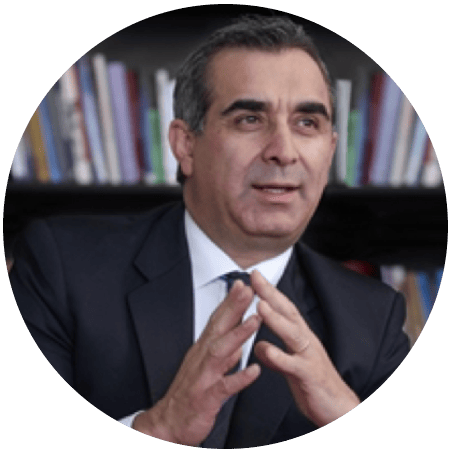
Gustavo Jalkh Röben
(Ecuador)
PhD from the University of Paris I Pantheon-Sorbonne. Master's Degree in Advanced Studies in Political Science from the Sorbonne University of Paris. Mediator, Lawyer and Doctor of Jurisprudence from the Pontificia Universidad Católica del Ecuador. Professor at various universities in Ecuador and abroad. International mediator and instructor in Conflict Resolution. He has been Minister of Justice and Human Rights, Minister of the Interior and President of the Council of the Judiciary of Ecuador. He promoted the oral procedural reform in all matters, the development of alternative conflict resolution methods and Restorative Justice in the Region. International Consultant in Judicial Reform and Negotiation Techniques and Conflict Resolution; He has received recognition from various international institutions for his contribution to Judicial Reform in the Region; He received the "Grand Cross of the Ibero-American Order of Justice" decoration, awarded by the Carlos III Foundation of Spain. Author of the work: "The Transformation of Justice in Ecuador: a measurable reality" which was sponsored by the Inter-American Development Bank (IDB). Former Pro Tempore Secretary of the Ibero-American Judicial Summit. He is currently President of the Ibero-American Institute of Justice, International Consultant and Academic Director of the Corporation 2030.

Natalia Bernardoni
(Argentina)
Lawyer - Mediator. Master in Conflict Management and Resolution University of Barcelona (Spain). European Master in Mediation. Intitute Universitaire Kurt Bosch (Switzerland). Founder of the Institute of Research and Development for Peace for the University Siglo XXI. Consultant for companies, universities and international organizations in Conflict Management, Negotiation, Dialogue and Bioenergetic Body Coach. In training and consulting programs: University of Barcelona, University of San Andrés, Inter-American Development Bank, INVAP, PWC, Banco Patagonia, San Cristóbal Seguros, Cablevisión, ICBC, BBVA, ACREA, Biogénesis Bago, Ernst & Youg. Techint, Banco Galicia, BDO, Toyota, Telecom, Quilmes, Banco BICE, Grupo Peñaflor, Rapsodia, Sandoz and YPF. Bioenergetic Therapist. Florida Society Bioenergetic Analysis (USA).
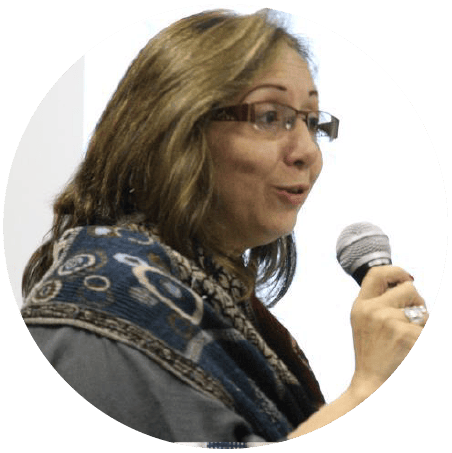
Sara Helena
(Colombia)
31 years of professional experience on three work fronts: training, research and project management. Six years coordinating the induction, training and follow-up project for psychology students at Universidad Santo Tomás de Colombia. Simultaneously, consultant in the development of selection, training and organizational climate programs in different national and multinational companies. For the past 25 years, she has taught psychology, negotiation and conflict resolution at Universidad Santo Tomás, Universidad del Rosario, Universidad Javeriana and Universidad de Los Andes. She has been a researcher and consultant in training projects, development and application of alternative methods of problem solving in school, community and business contexts. Professional emphasis in the development of projects on mediation, negotiation, conflict and emotional intelligence for the training of negotiators, conciliators and mediators in Colombia, Ecuador, Peru, Guatemala, El Salvador, Costa Rica, Argentina, Panama, Honduras, Bolivia and Chile. Program director of the training program for conciliators and negotiators at Universidad del Rosario. Consultant in charge of the design of the master's degree in conflict management and administration at the University of Cuenca. Director of the project for the development of citizenship competencies in young people for Opción Colombia. Consultant for the development of the conciliation school of thought in Colombia for the Ministry of Interior and Justice. Consultant for USAID in Colombia in the design of mediation evaluation programs and design of the House of Justice of South Tolima. Author of the book: DE LA VUELTA. Turn your problems into projects. Director of the National Mediation, Justice and Culture of Peace Program at the Council of the Judiciary, Ecuador. General Manager OF PROBLEMS TO PROJECTS.

Eduardo Garro Guillen
(Costa Rica)
Consultant specialized in organizational communication, facilitation and non-adversarial conflict resolution since 1989, with more than 30 years of experience. He was director of training and research for the Alternative Dispute Resolution Program, Judicial Branch of Costa Rica/USAID and director of the first professional mediation center in Costa Rica. He was also one of the main consultants of the Inter-American Development Bank and United Nations organizations for the creation and development of specialized conflict resolution agencies such as the Center for Conciliation and Arbitration of the Costa Rican Chamber of Commerce, the Center for Alternative Labor Dispute Resolution of the Ministry of Labor and Social Security of Costa Rica and the system of Houses of Justice of the Ministry of Justice and Grace of Costa Rica. He has worked on a variety of activities or projects on Alternative or Non-Violent Conflict Resolution and Peacemaking for institutions such as the International Training Center for Human Rights and Peace Education, Geneva, Switzerland (CIFEDHOP), the World Bank, the Inter-American Institute of Human Rights (IIDH-OAS), the Inter-American Institute of Human Rights (IIDH-OAS), the International Center for Human Rights and Peace Education (IIDH-OAS) and the Inter-American Institute of Human Rights (IIDH-OAS), The Inter-American Institute for Cooperation on Agriculture (IICA-OAS), the United Nations Latin American Institute for the Prevention of Crime and the Treatment of Offenders (ILANUD), the United Nations University for Peace (UPAZ-UN) and the Supreme Court of Justice of Costa Rica. He is the author of several manuals on conflict management in the areas of organizational communication, client communication, as well as topics such as professional negotiation, mediation and facilitation. Currently, he is the Founder and Director of the Aprendamos a Solucionar Conflictos Project, and also serves as Professor in Professional Mediation/Conciliation for the Centro de Arbitraje y Mediación, also known as Centro Iberoamericano de Arbitraje, of the Colegio de Abogados y Abogadas de Costa Rica (Costa Rican Bar Association).
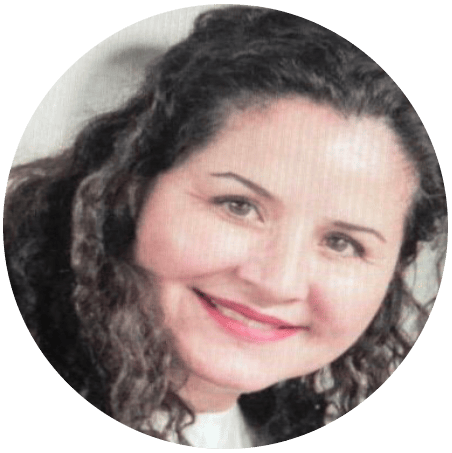
Silvina Marcela Paz
(Argentina)
Co-Founder and Academic Director of the Argentine Restorative Action Foundation, Teaching Director of the UNLP Youth Conflict Care Unit. Co Director of the Free Chair "Restorative Justice and Human Rights" UNLP Presidency. Lawyer UNLP, Specialist in Conflict Resolution Methods, Universidad de Belgrano, Specialist in Criminal Law Universidad Austral. Criminal Mediator University of Barcelona, Spain; Facilitator for the Cambio Democrático Foundation. Community Mediator, Association of American Lawyers Hostage Crisis Negotiator Attorney General Bs. As. Teacher Trainer in Restorative Justice Programs in Argentina, Paraguay, Chile, Brazil, Mexico and Costa Rica. Professor at the University of La Plata, and the University of Buenos Aires in Restorative Approaches and Postgraduate in Alternative Means of Conflict Resolution Penal Module. Specialized in Gender Supreme Court of Justice of the Nation 2019 Argentina. Scholarship from the Government of the United States of America, Program "Justice in Change".

Carlos Tomas Alvear Pena
(Ecuador)
Doctor of Jurisprudence and Lawyer of the Courts of the Republic from the University of Azuay. PhD student from the Catholic University of Buenos Aires. Mediator and arbitration secretary for the Chambers of Production of Azuay. He has served as General Director of the Judicial Council of Ecuador, National Director of the School of the Judiciary of Ecuador, National Director of Innovation, Development and Continuous Improvement of the Judicial Service of the Judicial Council of Ecuador, Undersecretary of Organizational Development of the Ministry of Government, Police, Human Rights and Cults, Head of General Services of the Electricity Corporation of Ecuador CELEC EP. He was Adviser to the Minister of the Interior. Trainer and trainer in various Ecuadorian and foreign universities. General Manager of Corporation 2030.
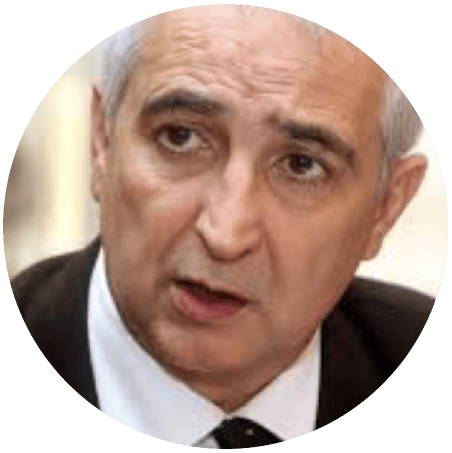
Victor Herrero Escrich
(Spain)
Career Official (Opposition) University of ZARAGOZA. Higher Center for Advanced Studies of Empresa Zaragoza. Official School of Penitentiary Studies, Training in criminal / penitentiary law, sociology criminology. Social mediator for interculturality. Magister in Criminal Mediation, Magister in drug addiction from the Complutence University of Madrid. Incidence of Drug Dependencies in the penitentiary environment. Youth and Drug Addiction Prevention and Intervention in drug addiction. Course for the performance of Head of Penitentiary Social Services. University Specialist in Intervention from a gender perspective. Intervention with juvenile offenders. Criminal Mediation. Expert in Coordination of development cooperation projects. Mediation and Provision of service to the Community.
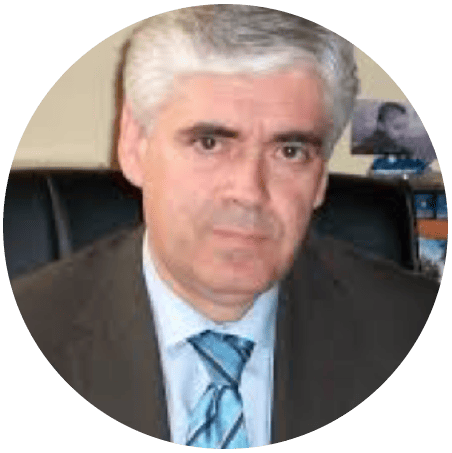
Dr. Tomas Montero Hernans
(Spain)
PhD in Law. Jurist of the Higher Corps of Penitentiary Institutions Technicians, an institution where he remained until 1999. In that year he began his experience in the field of Juvenile Justice in the Junta de Castilla y León, where he held the posts of Director of the Regional Center Zambrana and later as Head of the Service for Attention to Young Offenders. Since 2015 he is Technical Director of Child Care. At the university level, he has been Professor at the School of Legal Practice of Valladolid and Associate Professor in the Department of Criminal Law at the University of Valladolid. He currently collaborates in the Diploma of Specialization in Mediation of the University of Salamanca, teaching the "Juvenile Criminal Mediation Practum" and in the Master in Mediation and Extrajudicial Resolution of Conflicts of the University of Valladolid, as a professor in the subject of "Mediation Penal". He is part of the Group of Experts of the United Nations Inter-Agency Group on Juvenile Justice and regularly collaborates in conferences, seminars and courses whose theme is related to Juvenile Justice. He has published various monographs and articles, mostly on juvenile criminal law and prison law.
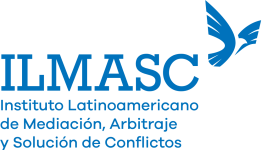
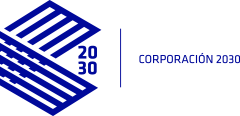
Contact us and start now
Headquarters Panama Building A
Phone: (+507) 264-9908 Founders Main Building: Transístmica, Vía Simón Bolívar
La Chorrera Headquarters Building A
Phone: (+507) 254-1141 Ave. de Las Americas, Plaza Nueva Orleans.
Chitre Headquarters Building A
Phone: (+507) 996-4260 In front of the Herrera park.
Santiago Headquarters Building A
Phone: (+507) 998-0363 2nd street diagonal to vector control.
David Headquarters Building A
Phone: (+507) 788-0018
Mariví Building, Ave. Francisco Clark, David.

